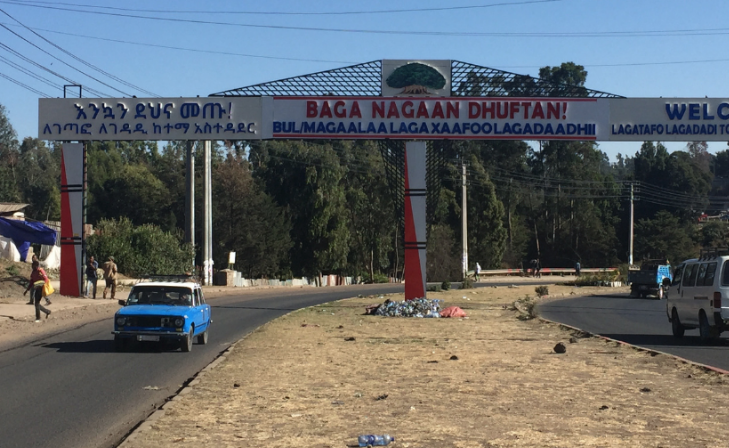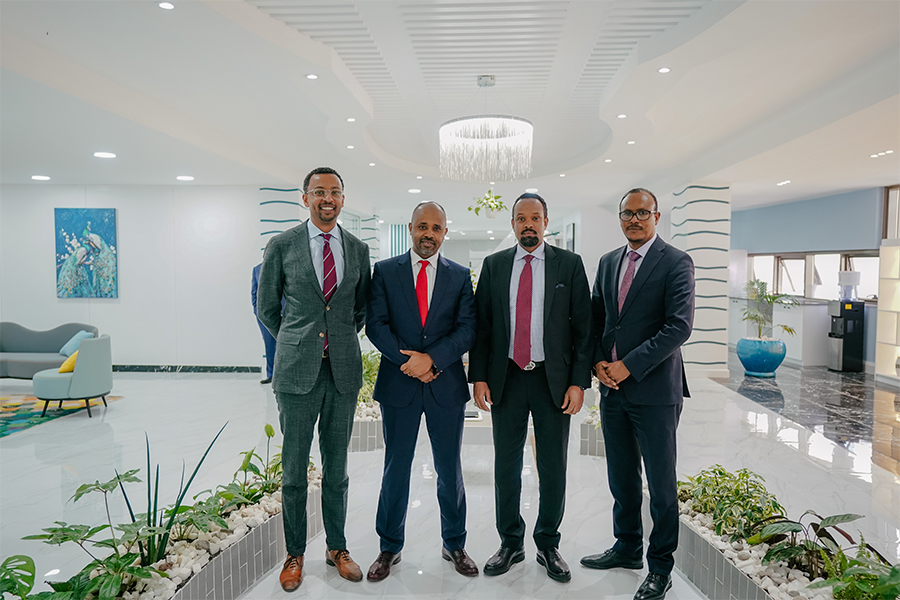
Fortune News | Apr 26,2019
Mar 4 , 2023
By BERSABEH GEBRE ( FORTUNE STAFF WRITER )
Contractors registered in Amhara Regional State are uneasy about the price adjustments made on the contractual agreements of unfinished projects by the administration. They claim the adjustment had only taken into account projects funded by the government, leaving out international institutions financing the projects in joint ventures.
According to the letter submitted by the Amhara Region Construction Contractors Association three weeks ago, authorities require foreign corporates to review the prices on the agreement, as they are operating within the country's laws. However, Tilahun Mehari, head of the Amhara Regional State Finance Bureau, said the regional state has no mandate to impose such a request.
"They've their own ways of conducting business," Tilahun told Fortune.
The Association lobbying for 500 members registered in the Amhara Regional State has submitted its inquiry on other points its members deemed not considered, signed by its President Muluken Bitew.
The adjusted price takes into account projects that began from April 2022 onwards leaving the constructions with a previous start date hanging, despite the inflationary wave that started to hit the sector way before.
"It's better than nothing, but not enough," said Muluken.
The absence of a formula remained a headache for several administrations until a committee comprising members from the Association, Ministry of Finance and Construction Works Regulatory Authority conducted the study to set a uniform calculation that was tabled for the final say.
Last June, the regional council approved a 30pc price increase for construction projects as of April 2022. Construction of buildings, irrigation dams, bridges and underground works, were included in the price adjustments taking 60pc of the remaining work into account.
According to Tilahun, the rate was raised once more following the reluctance to complete contractual obligations, requesting employers to apply the readjusted price last month.
The Amhara Regional State allotted five billion Birr to the capital projects, of the 95 billion Br budget for the fiscal year. The recent price adjustment requires the regional state to spend six billion Birr, exceeding its budget by a billion Birr.
The authorities at Amhara Regional State decided to focus on finishing the projects at hand rather than planning for new ones, with most failing to see the end within the deadlines.
Kindeye Fikadu is indifferent to the adjustment after comparing it with the exponential costs of construction inputs. He took on a project to be completed in four months but claims he could not deliver on time due to budgetary constraints.
Licensed as a grade 4 construction company, Kindeye entered the sector five years ago with an initial capital of 531,000 Br.
He recalls the price of steel had increased by 2,000 Br among other things, after signing the contractual agreement that forced him to sell one of his three trucks for 1.8 million Br to keep up with the costs and deliver the project in January, half a year past the deadline.
"Everything has increased during that time," he said.
The construction sector has a share of 21pc of the country's total GDP. According to data from the Construction Work Regulatory Authority, close to 20,000 construction firms are registered at a federal level.
Contractors also claim the rising price of construction materials is one element that caused the delay emphasising the need to consider special circumstances that were beyond their control into account. They argued to be compensated and incentivised for seeing to their projects end passing through difficult circumstances that resulted in the delay.
Ethio Nile Construction bagged a contract for 71 million Br, to build a hospital in Awi Zone, Amhara Regional State four years ago. The major shareholder of grade 2 construction firm, Temesgen Melaku said the regional Health Bureau has suspended the expansion of 465 projects due to the pandemic restrictions.
As a result, Ethio Nile was forced to put the project on pause for over a year and a half with only 61pc completion, according to Temesgen. However, the cost of construction materials has skyrocketed during the period bringing the aggregated construction cost way above the agreement.
"The difference is like a night and day," Temesgen told Fortune.
He suggests the government provides inputs with a subsidised cost to decrease the impact.
The authorities share the sentiment that the timing between the contractual agreement and the construction date has impacts on the price adjustments but did not seem to devise any mechanism to address the issue.
Tilahun said the contractors that sign agreements earlier and started construction later will be victims of inaccurate estimation.
"The latest projects reflect more accurate prices," he said.
Experts believe the rise in construction material is undeniable. However, using the 30pc advance payment of one project on another is the root cause for contractors drying out of finance. Abebe Dinku (Prof), department head of Construction Technology & Maintenance at Addis Abeba University (AAU), recommends contractors put some of their advance payments stocking up on inputs to avoid the burden of galloping inflation.
"They can't afford to go on like this," he told Fortune.
PUBLISHED ON
Mar 04,2023 [ VOL
23 , NO
1192]

Fortune News | Apr 26,2019

Fortune News | Mar 14,2020

Commentaries | May 02,2020

Fortune News | May 23,2021

Fortune News | Dec 16,2023

Radar | Jan 07,2023

Radar | Jul 02,2022

Radar | Oct 24,2020

Fortune News | Apr 22,2022

Radar | Aug 31,2019

Dec 22 , 2024 . By TIZITA SHEWAFERAW
Charged with transforming colossal state-owned enterprises into modern and competitiv...

Aug 18 , 2024 . By AKSAH ITALO
Although predictable Yonas Zerihun's job in the ride-hailing service is not immune to...

Jul 28 , 2024 . By TIZITA SHEWAFERAW
Unhabitual, perhaps too many, Samuel Gebreyohannes, 38, used to occasionally enjoy a couple of beers at breakfast. However, he recently swit...

Jul 13 , 2024 . By AKSAH ITALO
Investors who rely on tractors, trucks, and field vehicles for commuting, transporting commodities, and f...

Sep 13 , 2025
At its launch in Nairobi two years ago, the Africa Climate Summit was billed as the f...

Sep 6 , 2025
The dawn of a new year is more than a simple turning of the calendar. It is a moment...

Aug 30 , 2025
For Germans, Otto von Bismarck is first remembered as the architect of a unified nati...

Aug 23 , 2025
Banks have a new obsession. After decades chasing deposits and, more recently, digita...